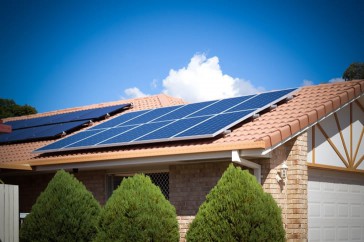Deciding to switch to solar power is a commendable resolution, but it brings a crucial question: how do you select the appropriate solar panels that fit your home’s energy needs? Understanding the different types of solar panels and assessing your home’s energy requirements can make your transition to solar energy a smooth and cost-effective experience. This comprehensive guide aims to provide clarity and direction in your journey towards a greener, more sustainable future.

Understand Your Energy Needs
Begin by examining your household’s energy consumption. Review your electricity bills, observe the trends in your energy usage, and understand peak consumption periods. Knowing your daily, monthly, and seasonal energy requirements will guide you in selecting a solar panel system that can meet these demands efficiently.
Explore the Types of Solar Panels
There are primarily three types of solar panels: monocrystalline, polycrystalline, and thin-film. Each varies in efficiency, appearance, and cost. Dive into the specifics of how they’re made and their suitability based on climatic conditions and installation space, as this will significantly impact their performance in your particular locale.
Consider the Efficiency
Solar panel efficiency is crucial as it determines the amount of sunlight converted into electricity. Higher efficiency means you may need fewer panels, which is beneficial for homes with limited space. Compare the efficiency rates of different models and brands, weighing them against the cost to find a balanced option.
Calculate the Costs and Your Budget
While solar panels are a significant investment, costs vary widely based on the panel type and brand. Consider installation costs, potential tax credits, and the possibility of purchasing versus leasing. Analyze various financing options to determine the most economically sensible plan for your budget and long-term energy goals.
Research on Warranties and Manufacturer Reliability
A solar panel’s warranty is a promise of its reliability. Understand the terms covered by the warranty, including output, workmanship, and additional guarantees. Investigate the manufacturers’ reputations, stability, and track record in honoring warranty claims.
Choosing the right solar panels for your home doesn’t have to be a daunting task. By understanding your energy needs, familiarizing yourself with the different types of panels, and considering the balance between efficiency and cost, you can make an informed decision that suits your household. Investing in solar energy is not just a step towards sustainable living but also a move that could save significant costs in the long run. As you embark on this journey, remember that the value of this investment transcends the financial aspect, contributing positively to a more sustainable world.








